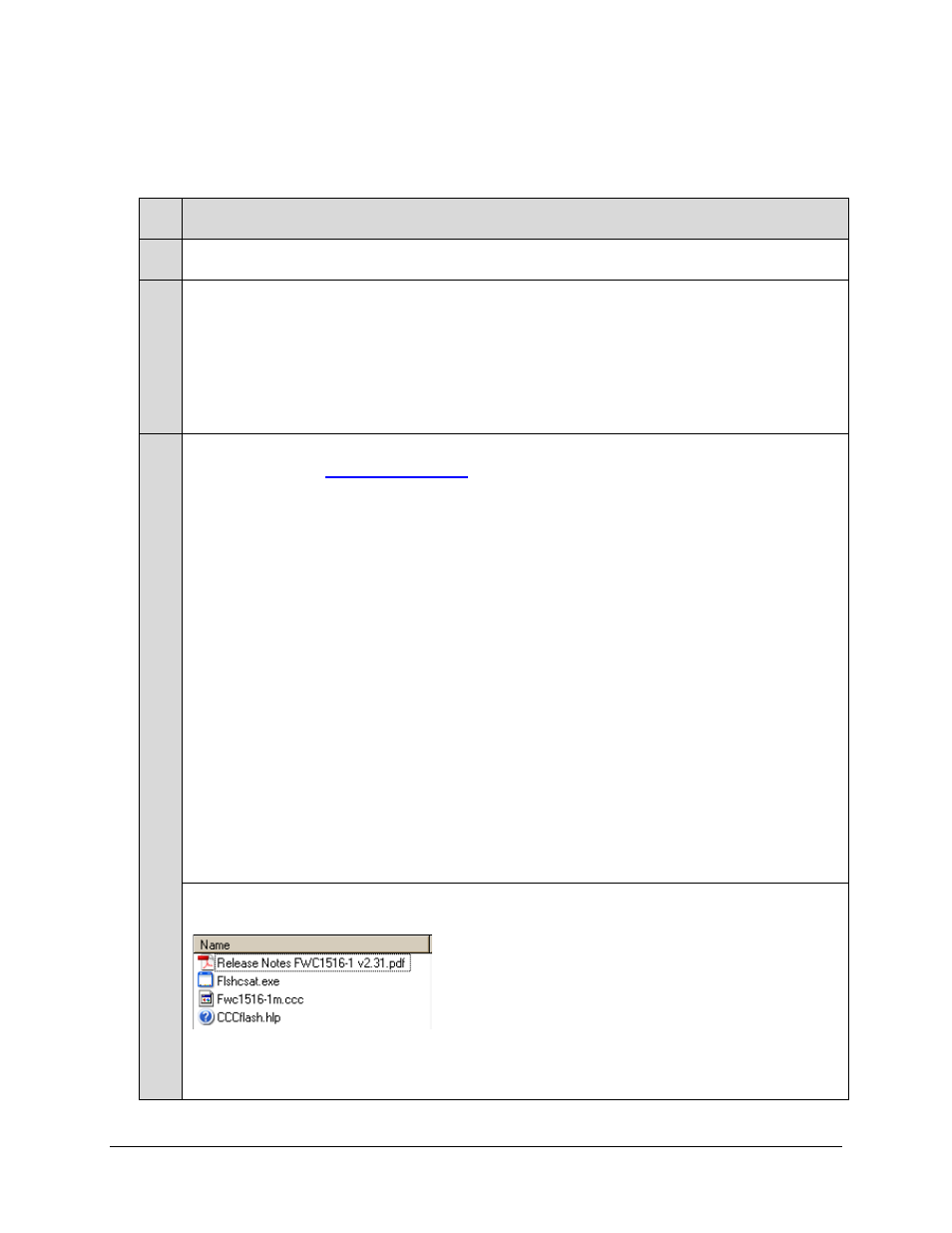Firmware file transfer procedure – Comtech EF Data CSAT-5060 User Manual
Page 194

CSAT-5060 C-Band Transceiver
Revision 1
Updating Firmware
MN/CSAT5060.IOM
3–2
Firmware File Transfer Procedure
Ste
p
Procedure
1
Identify the reflashable product, firmware number, and version for download. Via serial remote control, the
firmware number, versions, and revision level can be queried as follows: <0/FRW?
2
Create a temporary directory (folder) on the PC:
Windows: Select File New Folder and rename the “New Folder” to "temp" or another unused name. A
"c:\temp" folder should now exist.
Note: The c: is the drive letter used in this example. Any valid, writable drive letter can be used.
CMD prompt: At the command prompt (c:\>) type "MD temp" or “mkdir temp” without quotes (MD and mkdir stand
for make directory). A "c:\temp" subdirectory should now exist, where c: is the drive letter used in the example.
3
Download the correct firmware file to this temporary folder. As shown in Figure 3-1:
a) Go online to
b) Click on: Support tab;
c) Click on: Software Downloads drop-down or hyperlink from Support page;
d) Click on: Download Flash and Software Update Files icon;
e) Click on: Flash and Software Update Files / Select a Product Line: Legacy Products hyperlink at
the bottom of the page;
f) Under the Transceivers heading at the bottom of the Legacy Products page, select the latest file
hyperlink provided under the CSAT-1516 sub-head.
About Firmware Numbers, File Versions, and Formats: The flashable files on the download server are
organized by product prefix; depending on the product for which it is intended, the filename may designate the
firmware number (verify that the correct firmware number is known – see Step 1); revision letter, if applicable;
release version; and release date.
Note: The naming convention for the CSAT-5060 firmware link is F1516-1x_V### (where ‘x’denotes the firmware
revision letter, and ### denotes the firmware version number).
The current version firmware release is provided. If applicable, a minimum of one version prior to the current release is
also available. Be sure to identify and download the desired version.
The downloadable files are stored in two formats: *.exe (self-extracting) and *.zip (compressed). Some firewalls will
not allow the downloading of *.exe files. In this case, download the *.zip file instead.
For additional help with "zipped" file types, refer to PKZIP for Windows, WinZip, or ZipCentral help files. PKZIP for
DOS is not supported due to file naming conventions.
4
Extract the files to the temporary folder on the PC, PC, then verify the success of the file extraction using the dir
command. At least four files should be extracted:
•
ReleaseNotes_FWC1516_v#.##.pdf: Where “#.##” denotes the
firmware version number.
•
Fwc1516-1x.ccc: Firmware file, where "x" denotes the firmware
revision letter.
•
Flshcat.exe: CEFD Flash Upload Utility Program.
•
CCCflash.hlp: FLSHCSAT Help File.
If these four files are available as indicated here, proceed to the next section to perform the flash upgrade.
